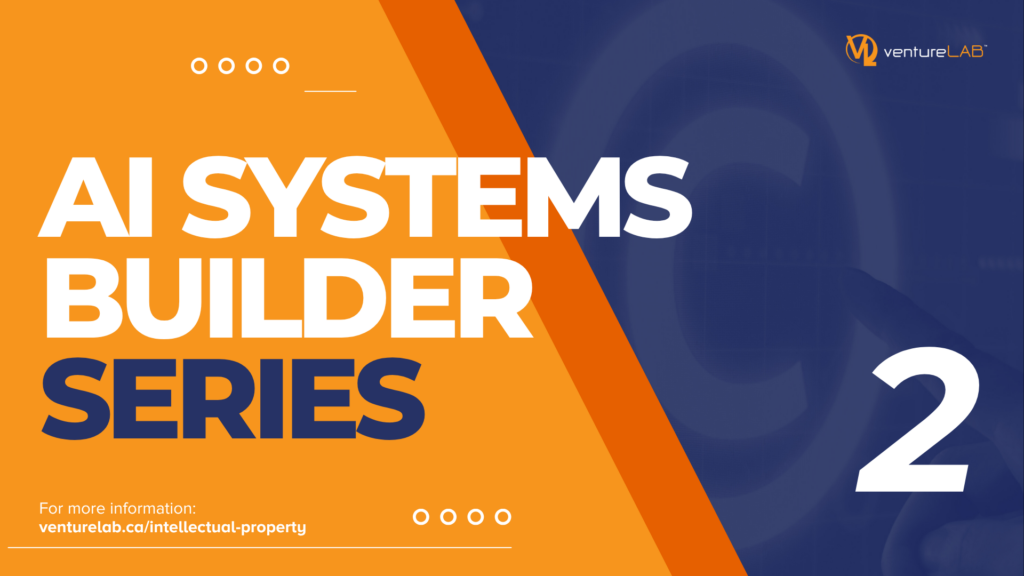Home » The IP Checklist for AI System Builders – Part 2: Data Creation and Storage
The IP Checklist for AI System Builders – Part 2: Data Creation and Storage

Building an AI System: Key Considerations
Developing an AI system encompasses more than just algorithms and code; it includes ethical responsibilities to ensure the system is created using data that is legally acquired, is not derived from stolen sources, and does not pose risks of harm if compromised. This discussion highlights crucial considerations during the various stages of AI development.
1. Handling Data for AI Training
AI systems often generate proprietary datasets, such as user behavior analytics and insights from interactions with AI-powered interfaces. Such data not only enhances the AI's capabilities but also offers businesses a competitive edge. To protect these valuable datasets, it’s essential to implement stringent access controls, enforce non-disclosure agreements (NDAs), and utilize encryption methods to prevent unauthorized access, leaks, or misuse.
2. Compliance with Data Privacy Laws
In Canada, The Personal Information Protection and Electronic Documents Act (PIPEDA) outlines how private-sector organizations should manage personal data. Similar mandates exist globally, such as the General Data Protection Regulation (GDPR) in Europe and the California Consumer Privacy Act (CCPA). Upcoming legislation, including Canada’s Consumer Privacy Protection Act (CPPA) and the Artificial Intelligence and Data Act (AIDA), seeks to bolster existing privacy standards, emphasizing the need for businesses to improve their data governance practices. AI companies are encouraged to anonymize or securely handle data to ensure compliance and avoid hefty fines.
3. Importance of Cybersecurity
Robust cybersecurity measures are critical while developing AI systems to protect sensitive information like personal data and intellectual property. Adhering to established cybersecurity frameworks and certifications, such as SOC 2 and SOC 3, communicates a commitment to handling user data responsibly and securely. Implementing these standards can mitigate risks and foster trust among clients and partners, ensuring that data utilized in AI models is well-protected.
4. Practical Implementation of Privacy and Security Regulations
A case study is Symend, a Calgary-based firm leveraging behavioral science and AI to improve customer engagement and debt recovery. They emphasize strict adherence to privacy laws and maintain strong governance policies outlined in their Privacy Policy, detailing how they collect, use, and safeguard personal information.
As AI technology continues to evolve, responsible management of data creation and storage becomes increasingly vital. Protecting proprietary data, complying with privacy regulations, and establishing robust cybersecurity protocols are essential steps to minimize risks and ensure regulatory compliance. Implementing these measures not only protects AI systems but also cultivates trust with users and business partners.
The next segment of this series will delve into AI systems' functionalities and features, offering insights into maintaining security and effectiveness within the technology landscape.
About the Author
Allessia Chiappetta is a second-year JD candidate at Osgoode Hall Law School, focusing on intellectual property and technology law. With a Master’s in Socio-Legal Studies from York University, her specialization includes AI regulation. Allessia collaborates with Communitech's ElevateIP initiative, advising innovators on the intricacies of IP commercialization. She frequently writes on IP developments for the Ontario Bar Association and is trilingual, speaking English, French, and Italian.
VentureLAB
https://www.venturelab.ca/
ventureLAB is a leading global founder community for hardware technology and enterprise software companies in Canada. Our organization is led by seasoned entrepreneurs and business leaders with decades of industry experience in building IP-rich start-ups, scale-ups, and global multinationals to help you scale your business. Located at the heart of Ontario’s innovation corridor in York Region, ventureLAB is part of one of the biggest and most diverse tech communities in Canada. We enable technology startups to accelerate the commercialization of transformational products on a global scale.


